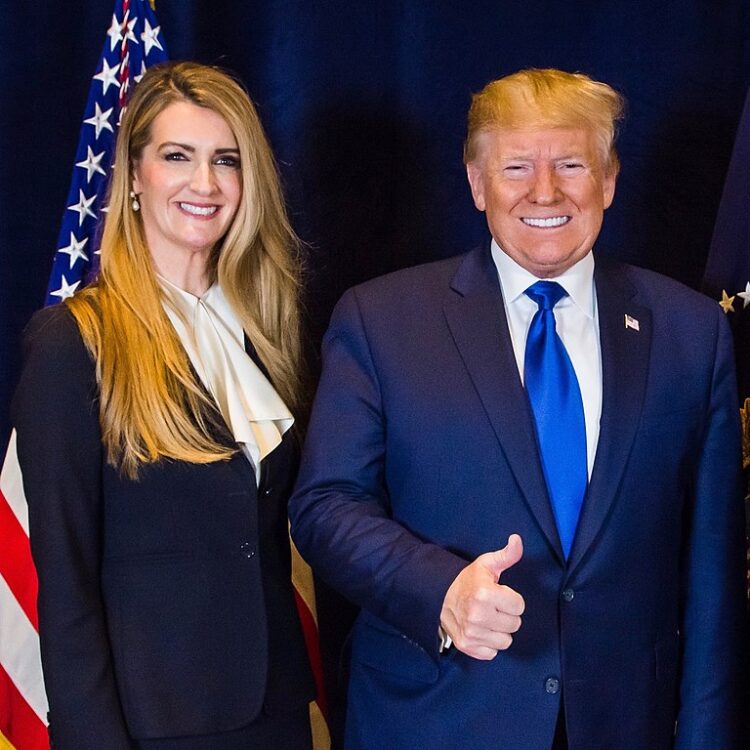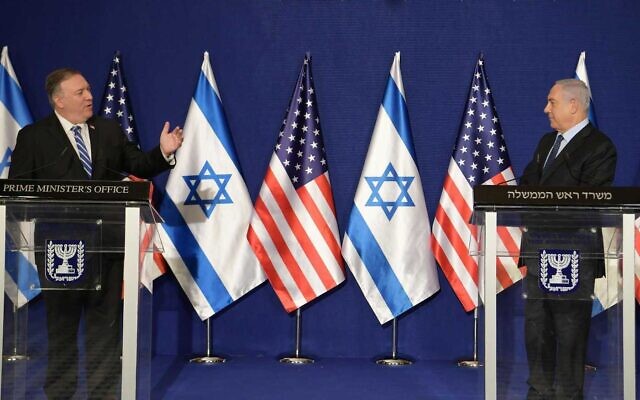Mike Pompeo paid a supposedly “private” visit to the West Bank on November 19, thereby becoming the first U.S. secretary of state to set foot in the West Bank since it was captured by Israel during the 1967 Six Day War.
Pompeo went to Psagot, a Jewish settlement near Ramallah built on privately-owned Palestinian land seized by Israel years ago for “security purposes” and then repurposed for its construction.

Last year, the winery in Psagot named one of its wines after him in recognition of his announcement that the United States no longer regards Jewish settlements in the West Bank as a violation of international law. Pompeo advanced this argument after saying that Washington’s old policy had been ineffectual and had failed to advance “the cause of peace.”
Psagot’s winery is mainly owned by the Falics, a wealthy American Jewish family which supports Israel’s network of settlements. The Falics have also contributed election campaign funds to Donald Trump, the outgoing U.S. president, and Israeli Prime Minister Benjamin Netanyahu.

During his visit, Pompeo, an evangelical Christian and a Christian Zionist, signed Psagot’s visitor’s book. “It is a blessing to be here in Judea and Samaria,” he wrote. “May I not be the last secretary of state to visit this beautiful land.”
While there, in accordance with the Trump administration’s pro-Israel tilt, Pompeo announced that Israeli exports from much of the West Bank to the United States will henceforth be classified as products of Israel.
This will affect Israeli goods manufactured in Area C, which comprises almost two-thirds of the West Bank. Israel retains full military and civil control in Area C, where the majority of Jewish settlers live.
Under the U.S. plan, products from Areas A and B, controlled by the Palestinian Authority in conjunction with Israel, would be labelled “Made in the West Bank.” Goods from the Gaza Strip, seized by Hamas from the Palestinian Authority in 2007, would be labelled “Made in Gaza.”
Claiming the new policy is consistent with Trump’s “reality-based foreign policy approach,” Pompeo explained that since Psagot operates within Israel’s “economic and administrative framework,” its products should “be treated accordingly.”
“We will continue to oppose those countries and international institutions which delegitimize or penalize Israel and Israeli producers in the West Bank through malicious measures that fail to recognize the reality on the ground,” Pompeo said.
For the past 25 years, since the advent of the Oslo peace process, Israeli goods produced in settlements were required to carry labels indicating their origin in the West Bank. In other words, Israeli settlement products could not pretend to be manufactured in Israel proper.

Psagot and other Jewish settlements ignored this prohibition because they regard the West Bank as an integral component of Israel. The false labels they affix on their products contravene European court rulings. In 2019, Psagot lost a lawsuit to force the European Union to revise its labelling policy.

The current Israeli government has encouraged and supported Psagot’s efforts to retain the label “Israel” on its wine bottles. Netanyahu, having laid claim to the West Bank, has always sought to blur the line between Israel and the Palestinian territories.
Pompeo made his announcement shortly after four Republican senators — Ted Cruz, Marco Rubio, Tom Cotton and Kelly Loeffler — urged Trump in a letter to allow “Israeli goods produced in Judea and Samaria to be labelled as ‘Made in Israel.”’

It’s not clear whether their letter was instrumental in convincing the Trump administration to side with the Israeli government on this controversial issue. What is abundantly clear is that Trump’s labelling policy represents yet another break with decades of U.S. policy on the Arab-Israeli dispute.
Trump’s overall position is profoundly detrimental to the cause of peace. It legitimizes and normalizes settlements, which are intended to break up the geographic contiguity of a Palestinian state. It angers and alienates the Palestinians, who view settlements as the physical manifestation of Israel’s occupation.
The Trump administration’s decision to revise its labelling policy is part and parcel of a pattern of actions to reshape the United States’ longstanding relationship with Israel.
Trump recognized Jerusalem as Israel’s capital and transferred the American embassy in Tel Aviv to Jerusalem. He recognized Israel’s sovereignty over the Golan Heights, which Pompeo visited during his most recent trip. He released a peace plan that was one-sidedly in favor of Israel and unanimously rejected by the Palestinians.
As well, Trump brokered Israeli normalization agreements with the United Arab Emirates, Bahrain and Sudan, and launched a “maximum pressure” campaign against Iran, Israel’s enemy.

On November 20, at Trump’s apparent behest, the U.S. Justice Department announced that Jonathan Pollard, an American Jew who was convicted of spying for Israel and spent 30 years in prison, had completed his parole and would be permitted to travel outside the United States. Successive Israeli governments attempted to free Pollard, and now he is free to settle in Israel. He acquired Israeli citizenship 25 years ago.
To say that Pompeo’s latest announcement signifies a major shift in U.S. policy would be an understatement. The United States, in effect, has implicitly recognized Israeli sovereignty over a large swath of the West Bank, which is claimed by the Palestinians.
In all fairness, the final status of the West Bank should be determined by the outcome of direct negotiations between Israel and the Palestinian Authority. Until such time, goods manufactured in West Bank settlements should not carry the label “Made in Israel.” It is misleading and dishonest.
The Trump administration’s conflation of the West Bank with Israel proper undermines the attainment of a two-state solution, the only realistic and practical one, and discredits moderate Palestinians ready for a rapprochement with Israel.

Trump’s pro-Israel policy has emboldened Israel’s right-wing government. The path that Netanyahu has been following since his reelection in 2009 could well lead Israel into binational statehood, which would destroy the Zionist dream. Alternatively, Netanyahu’s counter-productive policies could likely turn Israel into an undemocratic apartheid state where Palestinians have few, if any, rights. This is a prescription for injustice and endless tension and violence.
Right-wing Zionists would sharply disagree with this analysis, of course. With Trump’s presidency having been cut short by his defeat to Joe Biden in the recent presidential election, they have been thrown into a state of despondency and mourning.
Love him or hate him, Trump was virtually in perfect harmony with Israelis and Diaspora Jews who subscribe to a hardline version of Zionism.
